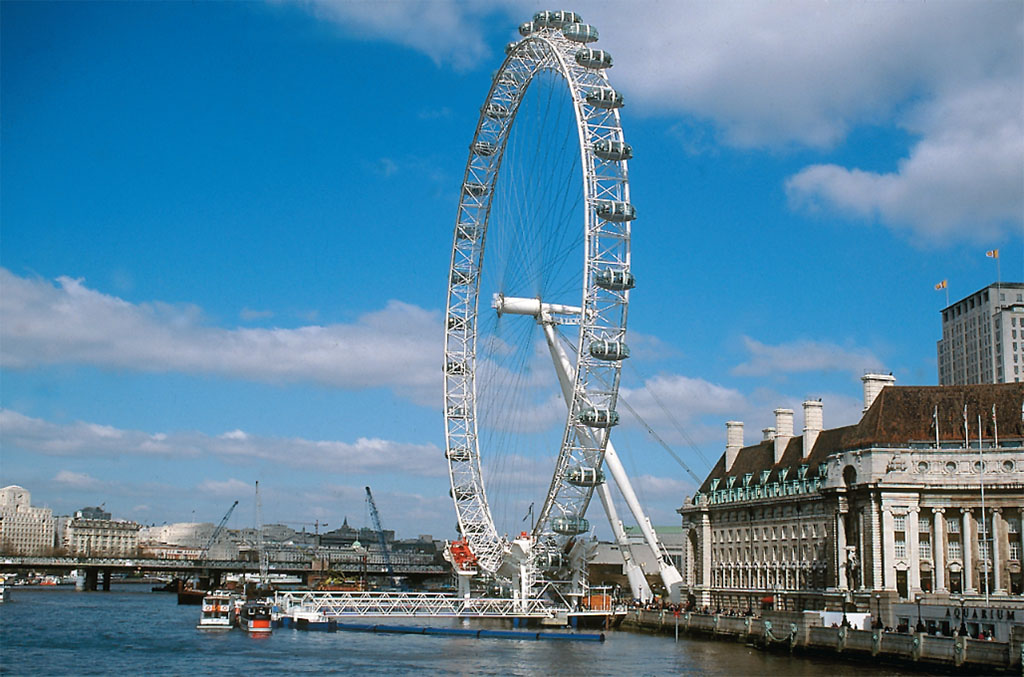
Reflections from the Beer Garden
[caption id="AroundtheRealmthisSummer_img1" align="aligncenter" width="261"]

THE FOLKS WHO READ this eclectic column on a regular basis are the hard core readers of British Heritage. But then this magazine, like all the Weider History Group publications, are written and edited for readers rather than grazers. And they make great Christmas gifts for readers, too. Check out our Web site at www.historynet.com
For British Heritage readers probably more than most Americans, our perceptions of British society and politics are inevitably colored by our own experience there. Our interests, our passions and our appreciation are influenced by what we love most of Britain and by our very selective travels in the island. Breezing in and out of friendly provincial cathedral cities like Exeter, Norwich and Wells, visiting gardens, castles and stately homes, traversing the green and pleasant land and waxing lyrical in village beer gardens gives us a slightly skewed perspective on contemporary Britain.
It is easy to forget that the UK is an urban country. Overwhelmingly, Britannia’s is an urban population, its 61 million gathered in a relatively small number of metropolitan areas. Generally, however, we don’t put Birmingham, Manchester and Glasgow on our touring calendars—let alone Sheffield, Leeds and Bradford.
‘OUR PERCEPTIONS OF BRITISH SOCIETY AND POLITICS ARE INEVITABLY COLORED BY OUR OWN EXPERIENCE THERE’
[caption id="AroundtheRealmthisSummer_img2" align="aligncenter" width="1024"]

DANA HUNTLEY
And what we see of London is city par excellance, but our experience is generally confined to the cosmopolitan 24 square miles within the Circle Line. But viewing them from the top of the London Eye is all we generally see of the sprawling residential neighborhoods that are home to London’s more than 7 million residents.
On almost any topic of life today—politics certainly, but also on social matters, the church, Europe and the European Union, America and American relations, and the very subject of British identity itself—the voices that speak for Britain are those of an urban society, far removed from the limestone cottages of a Cotswold village. Most British MPs represent constituencies that more resemble Cleveland or Detroit than Chipping Camden.
It is hardly surprising that the Britain we hear and read about in the American media seems a very different place from the Britain we know. It is. That doesn’t in the least change what we want to read about in British Heritage, but it is helpful to keep it in mind as we digest a few of Britain’s hot summer topics.
Perhaps unsurprisingly, I follow the British media on a regular basis. It’s always interesting to compare the coverage of events in Britain to their treatment by the American media. The deaths of Michael Jackson and Ted Kennedy, for instance, received significant attention in Britain. Often, the Brits seemed one step ahead of American news in the investigation into Jackson’s meaningless death. With the landmark passing of Kennedy, the British press were not reticent in pointing out that though his life and death were momentous, he was not a friend to Britain or to British interests over the years. Ah, the ghosts of Northern Ireland will be with us for quite a long time.
Big Brother really is watching. Orwell may have been a little ahead of his time with the predictions of 1984, but more and more Britons are convinced that Orwellian predictions have about come under the Labor Government of the last decade. The Nanny State has been getting an increasingly tough rap in the counties.
Nothing is more emblematic of the Nanny State than the prevalence of CCTV cameras that have surreptitiously become a ubiquitous presence across the countryside and cityscapes of Britain. In fact, Britain is among the most monitored societies in the world—with one per cent of the world’s population, a full 20 per cent of the world’s CCTV cameras follow their every move. Brits are repeatedly told that they are captured on film an average of 300 times a day by the nation’s 4 million cameras.
The justification for this intrusion into the everyday lives of its citizens, of course, is security. The camersa are anti-crime devices. It’s the oldest totalitarian dodge in the book: convincing people to accept a curtailment of their freedom and privacy in the interest of their security.
Now, it turns out that in London, home to almost a million CCTV cameras, the Metropolitan Police have admitted that less than one crime per year is solved for every 1,000 cameras. Separate research conducted by the Home Office concluded that the cameras did virtually nothing to cut crime, except to deter vehicle crime in car parks.
MP David Davis, former shadow Home Secretary, summarizes: “CCTV leads to massive expense and minimum effectiveness. It creates a huge intrusion on privacy, yet provides little or no improvement in security.” He speaks for many.
Meanwhile, Britain’s jobless rate remains high. In fact, it’s come out that a cool 1.5 million people have never held a job and live permanently on Britain’s “benefits.” The phenomenon is even shamelessly depicted by a popular TV drama series appropriately titled Shameless.
Most of us already know that whatever model of health care reform adopted in the U.S., we probably don’t want to swap our care for the NHS. To add insult to injury, on Bank Holiday headlines across the media proclaimed that British prisons provide better food than NHS hospitals. Hmm.
Whatever the history books might conclude about sundry policies of Gordon Brown’s Labour Government, the beleaguered premier’s administration doubtless will go down as one of the worst public relations disasters in the annals of political history. For the past year, Brown has been as defensively bunkered as King Alfred hiding from the Vikings. Alas, for Brown, no resurrection of his political fortunes lies in the cakes.
Brown was already about as unpopular an elected leader as I can recall in my half dozen decades. Then, along came the release of Ali al Megrahi, the sole convicted plotter in the Lockerbie plane disaster. And once again, Brown attempted to avoid even having to comment on the matter. That the British government should have had any kind of complicity in this release was, to say the least, a public relations fiasco. It just seems to have blindsided Brown, Jack Straw, Foreign Secretary David Miliband and other senior officials who should have known better.
Amazingly enough, a number of Gordon Brown’s colleagues and appointees in the cabinet freely admit that they don’t know better. Defense Secretary Bob Ainsworth admitted in an interview that he wasn’t particularly bright and had been overpromoted. He proposed to make up for that by surrounding himself with smart people, but how would he recognize them? Former Home Secretary Jacqui Smith confessed after her departure from office that she wasn’t up to the job.
The next general election has to be called by June 2010. Bertie Wooster would stand a better chance at leading a party to parliamentary victory than does Brown. Even a month is a long time in electoral politics, but it is fair to say that a parliamentary majority for David Cameron and the Conservatives is generally expected. Whether or not a new Tory Government will be able to reverse Britain’s economic quagmire, social malaise and infrastructure failings remains to be seen. When the worst case scenario is that they could do no worse, the bar of expectations is set pretty low.
After the election, analysts of several stripes will write bestsellers trying to explain what went on in Gordon Brown’s mind over the last two years of his continuation in office. It’s the deer-in-the-headlights syndrome.
It would be a shame, of course, to let the bumbling of the British Government spoil our good time. In fact, all those reasons we appreciate Britain and why we enjoy traveling there are indeed there still, and the great mission of British Heritage is to remind us. Stories like Sir Bernard de Hoghton’s and Hereford’s chained library, Cornwall’s Chysauster Ancient Village and the ancient craft of beer all prompt me to take a long-term view. The land of John Locke and Benjamin Disraeli, Winston Churchill and the Virgin Queen, both Gilbert and Sullivan, isn’t going to stay down and disheartened for long.
When this issue is to bed, I will head to the sunny uplands of North Wales to hear what they’re thinking at the village pub—while it’s still there. In fact, we’ll see what extraordinary steps folks are taking to make sure those pubs stay in the village. There is also some good eating to be had in a small Shropshire market town. And a chocolate dessert in Bournville. I’ll report from the road in our next issue. Ah yes, ‘tis still the land of hope and glory.





Comments